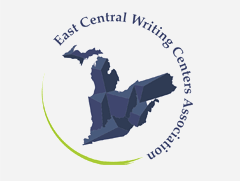Presentation/Proposal Title
“What Should I Like to Work on Today?” Assessing Student Response on Appointment Request Forms
Type of Presentation/Proposal
Panel Discussion
Start Date
5-4-2019 8:30 AM
End Date
5-4-2019 9:30 AM
Keywords
tutor reports, student requests, online appointment forms, tutoring sessions, writing center reports
Description
Responses to appointment request forms, whether detailed or sparse, allow writing center tutors to initiate conversations with students about perceptions of their writing and their identities as writers. In this study, we examine how students answer the question, “What would you like to work on today?” from 26 appointment request forms submitted to The University of Toledo Writing Center during Fall 2018 along with an analysis of post-session tutor reports. It is an opportunity, as Muriel Harris (1986) writes, “to listen more closely to hear what is being said ‘behind’ the words” (p. 61).
Our analysis is grounded in the idea of “threshold concepts” from Adler-Kassner and Wardle’s (2016) edited collection Naming What We Know: Threshold Concepts of Writing Studies. Included in this theoretical framework is inquiry into how students learn to use language to navigate their way into academia. One such threshold, we posit, takes place through their interaction within the space of an online text box in which they articulate expectations for their WC appointment. The text box becomes a valuable space for students to tell us something, even if they are not sure exactly what that is.
Presenters ask the questions: Do we need to listen more carefully or ask better questions? When we ask, “What would you like to work on today?” are we really inviting students to ask us, “What Should I Like to Work on Today?” Finally, what are implications of this dialogue space for tutor methodology and training?
“What Should I Like to Work on Today?” Assessing Student Response on Appointment Request Forms
M2320
Responses to appointment request forms, whether detailed or sparse, allow writing center tutors to initiate conversations with students about perceptions of their writing and their identities as writers. In this study, we examine how students answer the question, “What would you like to work on today?” from 26 appointment request forms submitted to The University of Toledo Writing Center during Fall 2018 along with an analysis of post-session tutor reports. It is an opportunity, as Muriel Harris (1986) writes, “to listen more closely to hear what is being said ‘behind’ the words” (p. 61).
Our analysis is grounded in the idea of “threshold concepts” from Adler-Kassner and Wardle’s (2016) edited collection Naming What We Know: Threshold Concepts of Writing Studies. Included in this theoretical framework is inquiry into how students learn to use language to navigate their way into academia. One such threshold, we posit, takes place through their interaction within the space of an online text box in which they articulate expectations for their WC appointment. The text box becomes a valuable space for students to tell us something, even if they are not sure exactly what that is.
Presenters ask the questions: Do we need to listen more carefully or ask better questions? When we ask, “What would you like to work on today?” are we really inviting students to ask us, “What Should I Like to Work on Today?” Finally, what are implications of this dialogue space for tutor methodology and training?



Comments
No additional information aside from need for smart-room technology